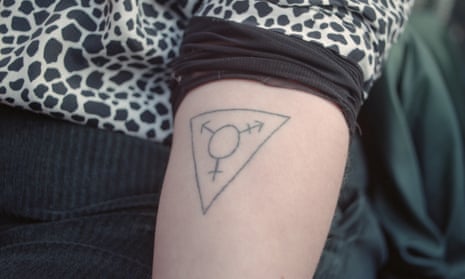On 24 October 1975 90% of all women in Iceland went on strike. Twenty-five thousand women – more than 10% of the country’s population – made their way to the parliamentary square to rally for their rights. Since that day, Iceland has been at the forefront of women’s rights, and since 2009 it has been at the top of the World Economic Forum global gender gap index.
That doesn’t mean the fight is won though, and Icelandic women continue the battle for true equality – not just for women, but for the LGBT community too. Despite a reputation for being one of the most progressive nations towards LGBT people, Iceland has in fact not always gone as far as it could. A recent bill – a form of self-identification for trans people – has moved the country further along. The prime minister of Iceland, Katrín Jakobsdóttir, was the driving force. For her, it was a way to ensure that Iceland was again setting an example for the world. “Well, you could say that we have been running a little bit behind, but now with this legislation we’re actually again at the front. So it took some time I think for this small group of people to actually get heard.”
Much like the feminist movement, trans people have struggled to be heard. While in Britain so often trans rights are considered in opposition to women’s rights, in Iceland the two are seen not just as compatible, but complementary. These movements aren’t disconnected. On the contrary, the reason the wider LGBT movement in Iceland has been so successful is thanks to the feminist movement, which has inspired and fought alongside them. Even though the Women’s Strike in 1975 may have been about basic civil rights in Iceland, its effect still lives on and emboldens the human rights movement as a whole.
The photographer Henri Kisielewski travelled to Iceland to capture the moment when this momentous social change took place, and to offer an insight into the lives of those it would most affect. As the bill passed through parliament, he met and photographed various trans people, feminists and lawmakers – including Jakobsdóttir and the former president Vigdís Finnbogadóttir, the first democratically elected female president in history.
To the trans community the changes have been hugely significant. Trans people can now change their name and gender via a statutory declaration, and they also have increased access to necessary trans-related healthcare. As Sandra Rós – a trans woman – recalls, the system used to be far too complicated: “Before the new law, you had to be in the transition process and live under the ‘correct gender role’ for a year in order to begin taking hormones. Then you had to be in the transition process for a year and a half to be allowed to apply for a name and gender change.”

The idea of a “correct gender role” in the old law was highly controversial within both trans’ and women’s rights organisations. Legally encoding gender roles in a modern society seemed wildly out of touch with the direction of travel in society. Erasing that concept was one of the great achievements of the new law.
In Iceland the women’s rights movement as a whole has been wholly supportive of trans rights for decades. All major feminist and human rights organisations declared their support for the law, and hailed it as an important step in reaching true equality in Iceland. For them, it was obvious. And for trans people like me, it offered a sense of hope for the future – a future where we can all work together to make the lives of those most in danger more positive.
Þorbjörg Þorvaldsdóttir, the chair of Samtökin ’78 – the national LGBTI organisation of Iceland – reflected on just how important this legislation was from a feminist perspective. “This is obviously a great step forward for LGBTQ+ rights, but the new law is also an important feminist milestone. Transphobia – as well as prejudice against LGBTQ+ people in general – is deeply rooted in outdated gender norms and misogyny. The passing of this legislation sends an affirmative message to society that every individual should be able to define and live their gender as they please without prejudice. I believe that this will benefit everyone, cis people and trans people alike.”
This certainly rings true with the experiences of trans women, who face everyday misogyny and abuse, on top of relentless transphobia. Official numbers show that 26% of women in the UK experience domestic violence, with supporting numbers showing that trans women are at heightened risk. Recent reports in the UK show an 81% increase in recorded hate crime towards transgender people.
It’s obvious that this bitter culture war over trans rights in the UK hasn’t helped anyone – whether cis or trans – and it certainly doesn’t make anyone safer. But if you’re not trans, I don’t blame you for tuning out of the debate. I wish I could. With the climate crisis and Brexit looming, it’s just another thing that makes me feel anxious and unsafe.
But if the UK truly wants to create a safe and just society, it needs to move away from limiting the freedoms of minority groups based on false narratives or for political gain. It needs to build a strong human rights movement that fights for the liberation of everyone, because none of us are free until we are all free. In the words of Finnbogadóttir: “If you think of it that way, it’s freedom. Everybody wants freedom.”
